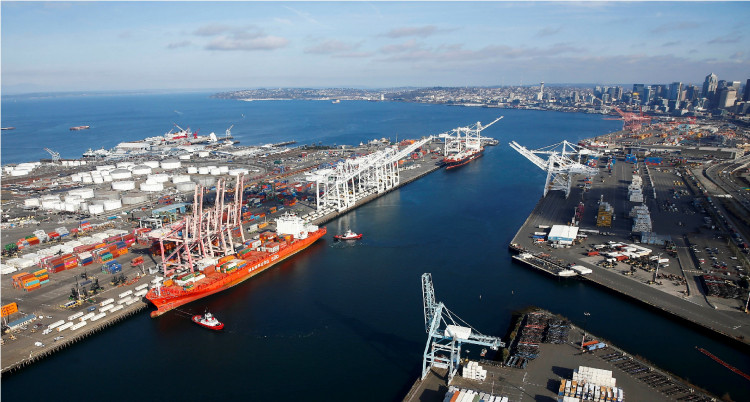Duisburg, the world's largest inland port and one of Europe's biggest transport and logistics hubs, became the western terminus of Chinese leader Xi Jinping's Belt and Road Initiative aimed to finance and build infrastructure in more than 80 countries.
The city located in Germany's north-western rust belt is believed to be a strange choice since it is a hard throbbing metropolis and has records for industrial decline and unemployment. It is now one of the four European countries that have direct connections with China including Paris, London, and Berlin.
Johannes Pflug, the city's commissioner for China, said that the Chinese see Duisburg and its port as their gateway to Western Europe which has given it a whole new significance.
The good relations of the city and China is evident in the Duisburg International terminal, one of the cargo handling hubs in the port, wherein containers arrive every day by train from Chongqing and Wuhan. The containers are then loaded to trucks and ships for distribution to Italy, Switzerland, France, and beyond.
The terminal's deal with China started in 2014 when President Xi Jinping came to the city to welcome a train arriving from Chongqing. Amerlie Erxleben, the terminal's head of international development, said that the growth of their China traffic has been exponential since then. She added that thirty of the 90 trains the terminal receives every week are from China.
The company rented an additional 200,000 square meter of land from Duisburg Port to accommodate the growing business with China. According to Ms. Erxleben, it was the last available space and they are really reaching the limits of their capacity in the terminal.
The Belt and Road Initiative gained praise and criticisms all around the globe. Western nations are among the biggest critics of China's new Silk Road.
The critics of the campaign warn that China is placing a smaller nation to a debt trap as they submit on the infrastructure projects funded by the Asian economic giant. Berlin and Paris recently criticized Italy after they welcomed the investments of China becoming the first G7 nation to endorse the initiative.
Italy's endorsement of the campaign is timely to the growing concern in the continent on the Asian nation's ambitions.
The European Commission labeled China last month as an "economic competitor" and "systemic rival" as the European Union prepares for a bilateral summit with China in April.
Germany's foreign minister, Heiko Maas, criticized Italy on their move saying that if some countries think they can do clever deals with the Chinese, they'll be surprised and wake up one day dependent on China.





